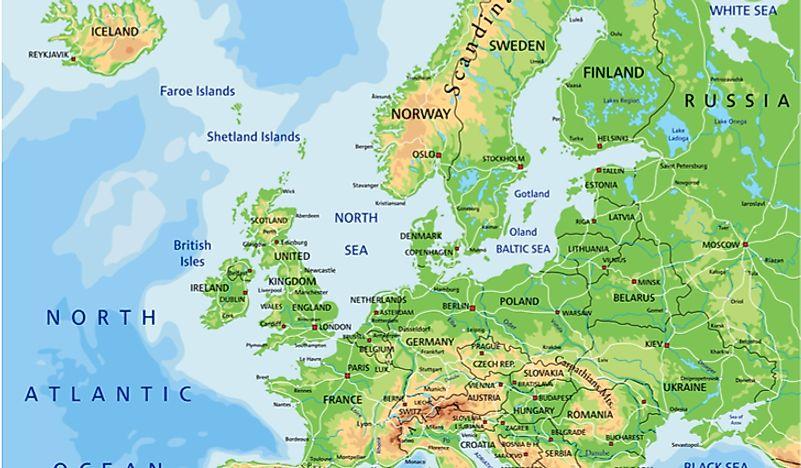The Evolving Dynamics of the U.S.-UK “Special Relationship” in the Trump Era
Table of Contents
- The Evolving Dynamics of the U.S.-UK “Special Relationship” in the Trump Era
- Historical Context and Recent Developments
- Implications for the United Kingdom
- European Union’s Response and Future Outlook
- Conclusion
- What are the main areas of U.S.-EU trade?
- Frequently Asked Questions (FAQ)
- 1.What is the “special relationship” between the U.S. and the UK?
- 2. How has President Trump’s management affected U.S.-UK relations?
- 3. What are the implications of U.S. tariffs on the UK economy?
- 4.How is the European Union responding to U.S. trade policies under President Trump?
- 5. What steps are European leaders taking to reduce dependency on the U.S.?
March 29, 2025
The longstanding “special relationship” between the United States and the United Kingdom has undergone significant strain under President Donald Trump’s administration. This period has prompted a reevaluation of the partnership’s health and its implications for both nations.
Historical Context and Recent Developments
Historically, the U.S.-UK alliance has been characterized by mutual defense commitments and shared democratic values. However, recent actions by the Trump administration have challenged this foundation. Notably, the administration has imposed tariffs on European goods, including those from the UK, and has shown alignment with Russia, such as reducing support for Ukraine and easing sanctions on Russia. These actions have led European leaders to consider the necessity of becoming more self-reliant in defense and other strategic areas. ([theatlantic.com](https://www.theatlantic.com/ideas/archive/2025/03/europe-trump-nato-russia/682239/?utm_source=openai))
Implications for the United Kingdom
The UK’s dependence on the U.S. for defense and economic matters has been a cornerstone of its foreign policy. However, the current administration’s policies have raised concerns about the sustainability of this reliance. The UK’s economic challenges, including welfare cuts and potential trade disruptions due to U.S. tariffs, have been exacerbated by the administration’s actions. ([ft.com](https://www.ft.com/content/017af330-78e2-4928-bff2-1d37dac27fa5?utm_source=openai))
European Union’s Response and Future Outlook
The European Union faces a complex situation as it navigates its relationship with the U.S. under the current administration. The EU has been urged to strengthen its military capabilities and reduce dependency on the U.S. for security. Leaders like Germany’s Chancellor Friedrich Merz and France’s President Emmanuel Macron have called for greater independence from the U.S., though substantial actions and increased defense budgets are necessary for this shift. ([theatlantic.com](https://www.theatlantic.com/ideas/archive/2025/03/europe-trump-nato-russia/682239/?utm_source=openai))
Conclusion
The U.S.-UK “special relationship” is at a crossroads. The current administration’s policies have strained this alliance, prompting both nations to reconsider their strategic priorities. For the UK, this may involve seeking greater autonomy in defense and economic matters. For the U.S., it presents an opportunity to reassess its foreign policy approach and its impact on traditional alliances.
What are the main areas of U.S.-EU trade?
Frequently Asked Questions (FAQ)
1.What is the “special relationship” between the U.S. and the UK?
The “special relationship” refers to the close diplomatic, cultural, and historical ties between the United States and the United Kingdom, characterized by mutual defense commitments and shared democratic values.
2. How has President Trump’s management affected U.S.-UK relations?
President Trump’s administration has strained the U.S.-UK alliance through actions such as imposing tariffs on European goods, including those from the UK, and aligning more closely wiht Russia, which has led to concerns about the sustainability of the UK’s reliance on the U.S. for defense and economic matters. ([theatlantic.com](https://www.theatlantic.com/ideas/archive/2025/03/europe-trump-nato-russia/682239/?utm_source=openai))
3. What are the implications of U.S. tariffs on the UK economy?
The U.S. tariffs, including a 25% duty on imports of finished cars and specific components, are expected to negatively impact both the German and U.S. economies by making imports more expensive and raising consumer prices in the U.S. This situation also affects the UK, as it has notable automotive trade with the U.S. ([reuters.com](https://www.reuters.com/markets/europe/german-finance-minister-warns-tariff-hit-us-german-economies-2025-03-28/?utm_source=openai))
4.How is the European Union responding to U.S. trade policies under President Trump?
The European Union is seeking dialogue with the U.S. to address trade disputes. Though, if negotiations fail, the EU is prepared to implement retaliatory measures, including tariffs on U.S. goods, to protect its economic interests. ([politico.eu](https://www.politico.eu/article/eu-strategy-donald-trump-tariffs-trade/?utm_source=openai))
5. What steps are European leaders taking to reduce dependency on the U.S.?
European leaders, such as Germany’s Finance Minister Joerg Kukies, are advocating for measures to prevent trade conflicts and reduce reliance on the U.S. for defense and economic matters.This includes strengthening the EU’s military capabilities and seeking greater independence in strategic areas. ([reuters.com](https://www.reuters.com/markets/europe/german-finance-minister-warns-tariff-hit-us-german-economies-2025-03-28/?utm_source=openai))

